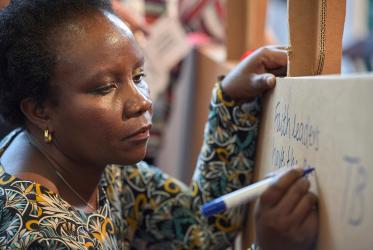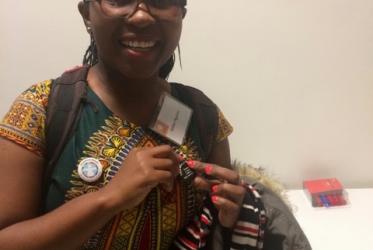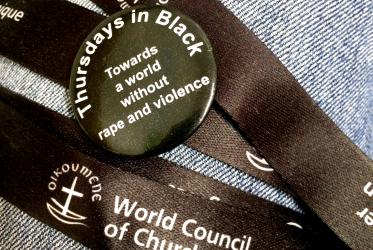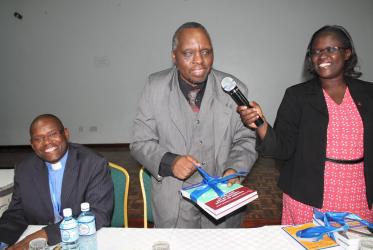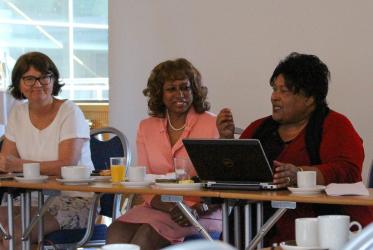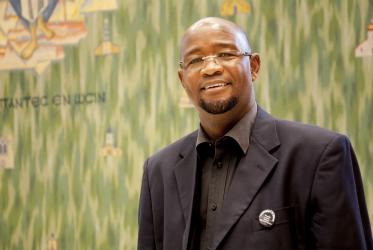Displaying 1 - 20 of 22
03 November 2022
New student body at Bossey Ecumenical Institute “a source of joy”
14 September 2020
Thursdays in Black: sharing support, transforming lives
21 February 2019
Thursdays in Black flourishes in Liberia
07 February 2019
Pan African Women of Faith issue fervent Call to Action
20 November 2018
Paving the way for ecumenical studies, learning English in Bossey
24 September 2018
When you have nothing, you give your heart
09 May 2018
"We have our work cut out for us"
10 August 2017
New theological materials offer fresh perspective on disabilities
08 December 2016
In Ghana, women bring open minds, honest words
05 July 2016
Churches need to do more to tackle HIV and AIDS
23 June 2015

